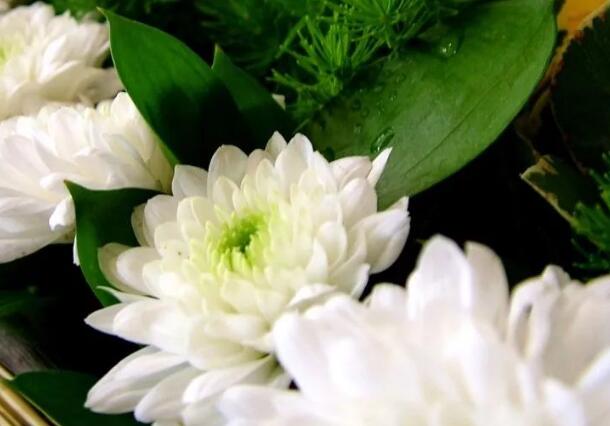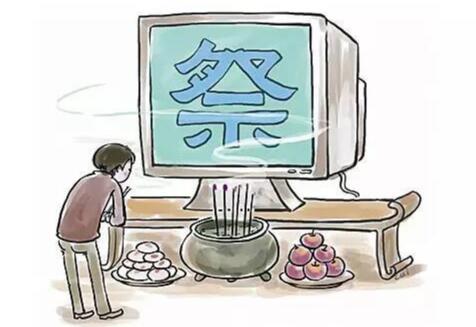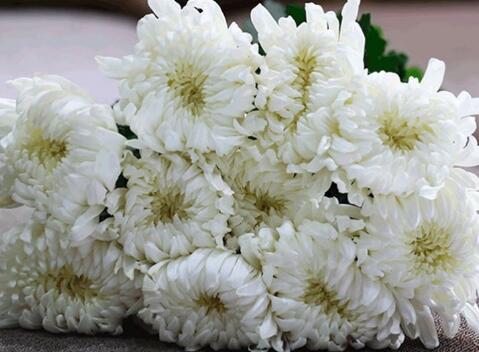春节的中英文介绍100字以下,快的
春节一般指除夕和正月初一。但在民间,传统意义上的春节是指从腊月初八的腊祭或腊月二十三或二十四的祭灶,一直到正月十五,其中以除夕和正月初一为高潮。在春节期间,我国的汉族和很多少数民族都要举行各种活动以示庆祝。这些活动均以祭祀神佛、祭奠祖先、除旧布新、迎禧接福、祈求丰年为主要内容。活动丰富多彩,带有浓郁的民族特色。
Spring Festival eve and the first day of the first lunar month generally. But in people, the Spring Festival, the traditional Lunar New Year Festival is stepped up another gear from the Greek festival or the day of the 12th month, 23 or 24 kitchen. until the fifteenth day, culminating with New Year"s Eve and the first day of the first lunar month. During the Spring Festival, China"s Han ethnic minorities and many have held various activities to mark the occasion. These activities are designed for worship deities and ancestral shrine to deliver and meet the millennium bringers of good fortune, in the hope of the harvest as the main content. Rich and colorful activities with strong ethnic characteristics.
当午夜交正子时,新年钟声敲响,整个中华大地上空,爆竹声震响天宇。在这“岁之元、月之元、时之元”的“三元”时刻,有的地方还在庭院里垒“旺火”,以示旺气通天,兴隆繁盛。在熊熊燃烧的旺火周围,孩子们放爆竹,欢乐地活蹦乱跳,这时,屋内是通明的灯火,庭前是灿烂的火花,屋外是震天的响声,把除夕的热闹气氛推向了最高潮。]
When neutrons is the turn of midnight, New Year bell sounded, the entire land of China over firecrackers Beidao Tianyu. In this age, a month, when Yuan, 3 times and in some places still yard barrier Wanghuo Airbus to show brisk gas, booming levels. Wanghuo burning in flames around, the children set off fire crackers, joyous to jump and when that happens, the house is brightly lit, the lights. Pretrial is brilliant sparks house is the noisy sounds, the eve of the Chinese Lunar New Year festive atmosphere to a climactic.
压岁钱是由长辈发给晚辈的,有的家里是吃完年夜饭后,人人坐在桌旁不许走,等大家都吃完了,由长辈发给晚辈,并勉励儿孙在在新的一年里学习长进,好好做人。有的人家是父母在夜晚待子女睡熟后,放在他们的枕头下,更多的人家是小孩子们齐集正厅,高呼爷爷奶奶、爸爸妈妈新年快乐,列队跪拜;而后伸手要红包。甚而追讨到爷爷妈妈的卧房,一齐跑到床沿,大嚷特嚷:“压岁钱,压岁钱!”老人家还嫌不够热闹,故作小气,由讨价还价到围攻摸索,最后把老祖宗的红包挖掘出来,大家抢掠一空,才呼啸而散。老人家逢此情景却乐不可支,认为这是新年事事顺利的好兆头。过年给压岁钱,体现出长辈对晚辈的关爱,和晚辈对长辈的尊敬,是一项整合家庭伦理关系的民俗活动。
New Year"s money was distributed by the elder generation, and some homes are finished dinner, everybody sitting on the table and must not be followed. so we are finished, issued by the elder generation and encouraged kids to learn directors in the new year, a good man. Some other parents at night after the children Xie Li had put on their pillows, children and more people are gathered at the main hall. shouted grandparents, Mom and Dad a happy New Year and lined up a manifestation; then ask for a red envelope. Even the recovery of her mother"s bedroom grandfather, went to bed together, a lot of noises special shout : New Year money. New Year"s money! elderly home was not enough excitement and pretended stingy, besieged by bargain to explore Finally, the red packets tapped ancestors, we rob a space before roaring and unfocused. They get such a kick out of this scene on the elderly that it is a good omen for the new year very well. New Year for the New Year"s money, demonstrate the love of the older generation to generation, the respect for older and younger people. Integration of family relations is a folk activities.
The Origin of Chinese New Year
The Chinese New Year is now popularly known as the Spring Festival because it starts from the Begining of Spring (the first of the twenty-four terms in coodination with the changes of Nature). Its origin is too old to be traced. Several explanations are hanging around. All agree, however, that the word Nian, which in modern Chinese solely means year, was originally the name of a monster beast that started to prey on people the night before the beginning of a new year.
One legend goes that the beast Nian had a very big mouth that would swallow a great many people with one bite. People were very scared. One day, an old man came to their rescue, offering to subdue Nian. To Nian he said, I hear say that you are very capable, but can you swallow the other beasts of prey on earth instead of people who are by no means of your worthy opponents? So, it did swallow many of the beasts of prey on earth that also harrassed people and their domestic animals from time to time.
After that, the old man disappeared riding the beast Nian. He turned out to be an immortal god. Now that Nian is gone and other beasts of prey are also scared into forests, people begin to enjoy their peaceful life. Before the old man left, he had told people to put up red paper decorations on their windows and doors at each year"s end to scare away Nian in case it sneaked back again, because red is the color the beast feared the most.
From then on, the tradition of observing the conquest of Nian is carried on from generation to generation. The term Guo Nian, which may mean Survive the Nian becomes today Celebrate the (New) Year as the word guo in Chinese having both the meaning of pass-over and observe. The custom of putting up red paper and firing fire-crackers to scare away Nian should it have a chance to run loose is still around. However, people today have long forgotten why they are doing all this, except that they feel the color and the sound add to the excitement of the celebration.
----------------------------------------------------------------------------------------------------------------------
The Spring Festival is the most important festival for the Chinese people and is when all family members get together, just like Christmas in the West. All people living away from home go back, becoming the busiest time for transportation systems of about half a month from the Spring Festival. Airports, railway stations and long-distance bus stations are crowded with home returnees.
Strictly speaking, the Spring Festival starts every year in the early days of the 12th lunar month and will last till the mid 1st lunar month of the next year. Of them, the most important days are Spring Festival Eve and the first three days. The Chinese government now stipulates people have seven days off for the Chinese Lunar New Year.
Many customs accompany the Spring Festival. Some are still followed today, but others have weakened.
On the 8th day of the 12th lunar month, many families make laba porridge, a delicious kind of porridge made with glutinous rice, millet, seeds of Job"s tears, jujube berries, lotus seeds, beans, longan and gingko.
The 23rd day of the 12th lunar month is called Preliminary Eve. At this time, people offer sacrifice to the kitchen god. Now however, most families make delicious food to enjoy themselves.
After the Preliminary Eve, people begin preparing for the coming New Year. This is called Seeing the New Year in.
Store owners are busy then as everybody goes out to purchase necessities for the New Year. Materials not only include edible oil, rice, flour, chicken, duck, fish and meat, but also fruit, candies and kinds of nuts. What"s more, various decorations, new clothes and shoes for the children as well as gifts for the elderly, friends and relatives, are all on the list of purchasing.
Before the New Year comes, the people completely clean the indoors and outdoors of their homes as well as their clothes, bedclothes and all their utensils.
Then people begin decorating their clean rooms featuring an atmosphere of rejoicing and festivity. All the door panels will be pasted with Spring Festival couplets, highlighting Chinese calligraphy with black characters on red paper. The content varies from house owners" wishes for a bright future to good luck for the New Year. Also, pictures of the god of doors and wealth will be posted on front doors to ward off evil spirits and welcome peace and abundance.
The Chinese character fu (meaning blessing or happiness) is a must. The character put on paper can be pasted normally or upside down, for in Chinese the reversed fu is homophonic with fu comes, both being pronounced as fudaole. What"s more, two big red lanterns can be raised on both sides of the front door. Red paper-cuttings can be seen on window glass and brightly colored New Year paintings with auspicious meanings may be put on the wall.
People attach great importance to Spring Festival Eve. At that time, all family members eat dinner together. The meal is more luxurious than usual. Dishes such as chicken, fish and bean curd cannot be excluded, for in Chinese, their pronunciations, respectively ji, yu and doufu, mean auspiciousness, abundance and richness. After the dinner, the whole family will sit together, chatting and watching TV. In recent years, the Spring Festival party broadcast on China Central Television Station (CCTV) is essential entertainment for the Chinese both at home and abroad. According to custom, each family will stay up to see the New Year in.
Waking up on New Year, everybody dresses up. First they extend greetings to their parents. Then each child will get money as a New Year gift, wrapped up in red paper. People in northern China will eat jiaozi, or dumplings, for breakfast, as they think jiaozi in sound means bidding farewell to the old and ushering in the new. Also, the shape of the dumpling is like gold ingot from ancient China. So people eat them and wish for money and treasure.
Southern Chinese eat niangao (New Year cake made of glutinous rice flour) on this occasion, because as a homophone, niangao means higher and higher, one year after another. The first five days after the Spring Festival are a good time for relatives, friends, and classmates as well as colleagues to exchange greetings, gifts and chat leisurely.
Burning fireworks was once the most typical custom on the Spring Festival. People thought the spluttering sound could help drive away evil spirits. However, such an activity was completely or partially forbidden in big cities once the government took security, noise and pollution factors into consideration. As a replacement, some buy tapes with firecracker sounds to listen to, some break little balloons to get the sound too, while others buy firecracker handicrafts to hang in the living room.
The lively atmosphere not only fills every household, but permeates to streets and lanes. A series of activities such as lion dancing, dragon lantern dancing, lantern festivals and temple fairs will be held for days. The Spring Festival then comes to an end when the Lantern Festival is finished.
China has 56 ethnic groups. Minorities celebrate their Spring Festival almost the same day as the Han people, and they have different customs.
----------------------------------------------------------------------------------------------------------------------
春节背景知识(英文介绍)☆
Introduction
The oldest and most important festival in China is the Spring Festival, more commonly known in the West as Chinese New Year. Like all Chinese festivals, the date of the new year is determined by the lunar/solar calendar rather than the Western (Gregorian) calendar, so the date of the holiday varies from late January to mid February.
The Spring festival celebrates the earth coming back to life, and the start of ploughing and sowing. In the past, feudal rulers of dynasties placed great importance on this occasion, and ceremonies to usher in the season were performed.
Preparations for the New Year festival start during the last few days of the last moon. Houses are thoroughly cleaned, debts repaid, hair cut and new clothes bought. Doors are decorated with vertical scrolls of characters on red paper whose texts seek good luck and praise nature, this practice stemming from the hanging of peach-wood charms to keep away ghosts and evil spirits. In many homes incense is burned, and also in the temples as a mark of respect to ancestors.
On New Year’s Eve houses are brightly lit and a large family dinner is served. In the south of China sticky-sweet glutinous rice pudding called nian gao is served, while in the north the steamed dumpling jiaozi is popular. Most celebrating the festival stay up till midnight, when fireworks are lit, to drive away evil spirits. New Years day is often spent visiting neighbours, family and friends.
The public holiday for New Year lasts 3 days in China, but the festival traditionally lasts till the 15th day of the lunar month and ends with the ‘Lantern Festival’. Here, houses are decorated with colourful lanterns, and yuanxioa, a sweet or savoury fried or boiled dumpling made of glutinous rice flour is eaten.



